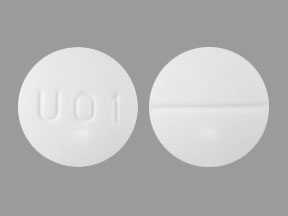
My prescription
Edit
5-325MG, Hydrocodone-acetaminophen (90 Tablets)
Select pharmacy

CVS
$25.05
COUPON PRICE
Walgreens
$19.44
COUPON PRICE
Albertsons
$26.64
COUPON PRICE
Walmart
$59.51
COUPON PRICEHydrocodone-acetaminophen savings card
Show this card to your pharmacist
Walgreens
$19.44
BIN
ID
PCN
GRP
019876
LH640F024B
CHIPPO
LHX
Powered by
More prescriptions for pain
More prescriptions for pain
Price history for Lortab (brand) & Hydrocodone-acetaminophen (generic)
90 Tablets, 5-325MG
Average retail price for Lortab
Average retail price for Hydrocodone-acetaminophen
Average SaveHealth price for Hydrocodone-acetaminophen
Our price history data is based on aggregated prescription data collected from participating pharmacies in America. Our prescription data updates daily to reflect the latest price changes. If you notice a missing data point, it means there wasn't sufficient data available to generate a monetary value for that date.
We analyzed Hydrocodone-acetaminophen prices for (5-325MG, 90 Tablets) over the last 12 months. The average retail price was $66.03, while the average price using the SaveHealth discount card was $20.94. That's a savings of approximately 68.29% when using our Hydrocodone-acetaminophen coupon.
Compared to the generic version, Lortab had an average price of $281.64 over the same time period. With the SaveHealth savings card, Hydrocodone-acetaminophen is 92.56% cheaper on average than Lortab.
*Retail prices are based on pharmacy claims data, and may not be accurate when we don't have enough claims.
Hydrocodone-acetaminophen dosage forms
Dosage Quantity Price from Per unit 2.5-325MG 12 Tablets $2.00 $0.17 2.5-325MG 100 Tablets $43.68 $0.44 5-325MG 90 Tablets $19.44 $0.22 5-300MG 12 Tablets $11.35 $0.95 5-300MG 20 Tablets $12.92 $0.65 5-300MG 30 Tablets $14.88 $0.50 5-300MG 60 Tablets $20.76 $0.35 5-300MG 90 Tablets $26.64 $0.30 5-325MG 12 Tablets $10.39 $0.87 5-325MG 20 Tablets $11.32 $0.57
| Dosage | Quantity | Price from | Per unit |
|---|---|---|---|
| 2.5-325MG | 12 Tablets | $2.00 | $0.17 |
| 2.5-325MG | 100 Tablets | $43.68 | $0.44 |
| 5-325MG | 90 Tablets | $19.44 | $0.22 |
| 5-300MG | 12 Tablets | $11.35 | $0.95 |
| 5-300MG | 20 Tablets | $12.92 | $0.65 |
| 5-300MG | 30 Tablets | $14.88 | $0.50 |
| 5-300MG | 60 Tablets | $20.76 | $0.35 |
| 5-300MG | 90 Tablets | $26.64 | $0.30 |
| 5-325MG | 12 Tablets | $10.39 | $0.87 |
| 5-325MG | 20 Tablets | $11.32 | $0.57 |
| 5-325MG | 60 Tablets | $15.96 | $0.27 |
| 5-325MG | 120 Tablets | $22.92 | $0.19 |
| 7.5-300MG | 20 Tablets | $13.74 | $0.69 |
| 7.5-300MG | 30 Tablets | $16.11 | $0.54 |
| 7.5-300MG | 60 Tablets | $23.22 | $0.39 |
| 7.5-300MG | 90 Tablets | $30.33 | $0.34 |
| 7.5-300MG | 120 Tablets | $35.63 | $0.30 |
| 7.5-325MG | 12 Tablets | $10.56 | $0.88 |
| 7.5-325MG | 30 Tablets | $12.90 | $0.43 |
| 7.5-325MG | 60 Tablets | $16.80 | $0.28 |
| 7.5-325MG | 90 Tablets | $20.70 | $0.23 |
| 7.5-325MG | 120 Tablets | $24.60 | $0.20 |
| 10-300MG | 30 Tablets | $16.59 | $0.55 |
| 10-300MG | 60 Tablets | $24.18 | $0.40 |
| 10-300MG | 90 Tablets | $31.77 | $0.35 |
| 10-300MG | 120 Tablets | $39.36 | $0.33 |
| 10-300MG | 180 Tablets | $58.04 | $0.32 |
| 10-325MG | 60 Tablets | $17.22 | $0.29 |
| 10-325MG | 90 Tablets | $21.33 | $0.24 |
| 10-325MG | 120 Tablets | $25.44 | $0.21 |
| 10-325MG | 150 Tablets | $29.55 | $0.20 |
| 10-325MG | 180 Tablets | $33.66 | $0.19 |
